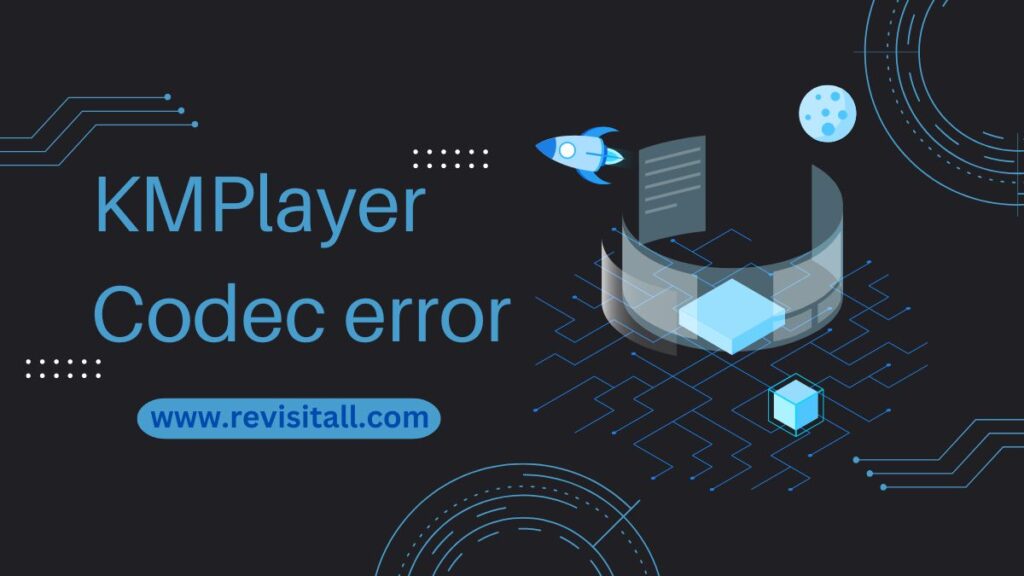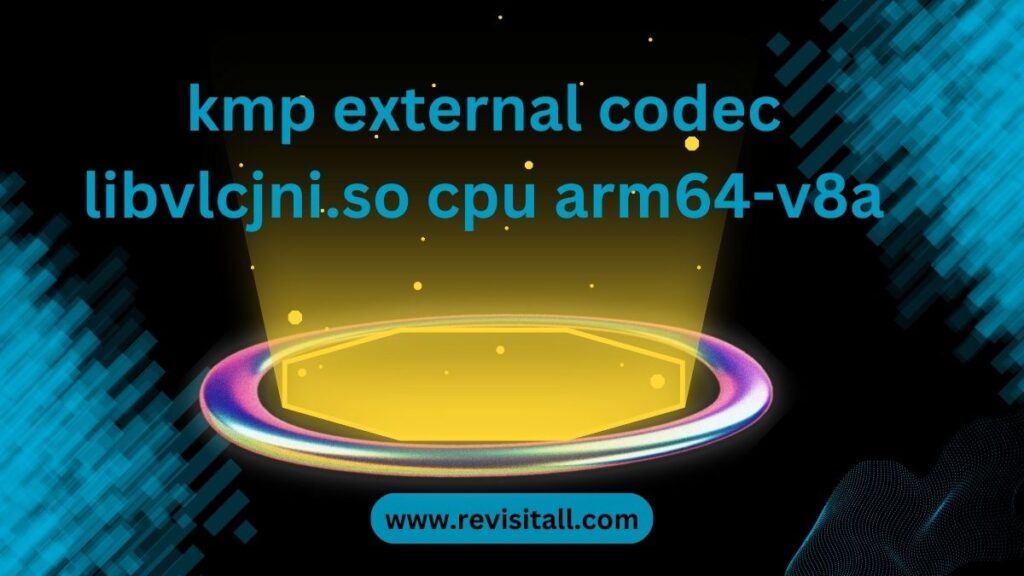‘Kmp external codec libvlcjni.so cpu arm64-v8a’ can be a worthy tool to play your favorite media files. At the same time, finding a reliable KMP App can be tedious as the remaining options are very limited. If you are in the same situation of feeling hopeless, don’t worry any longer because this article will help. From what a KMP is, to briefing about codec and how you can download your software, among other common queries — we have discussed each one of them. That being said, you can start unraveling more right here:
An Overview of kmp external codec libvlcjni.so cpu arm64-v8a
KMP happens to be a popular media player that works similarly to VLC. Otherwise known as Kmedia player, Kmp is most appreciated for supporting diverse video formats. Everything about this media player is amazing, except that running specific kinds of media files requires a special kind of script or code (i.e. codec). This is also the reason why people get an external codec libvlcjni.so file, every time they download a KMP. Perhaps, the external libvlcjni.so file works nicely and doubles the capability of Kmp and users won’t find any restrictions moving forward.
Know About Codec
Codec can be referred to as a special computer program that either encodes or decodes the signal or data stream. Its primary function is to compress and decompress media, depending on the need. Media that is supervised under codec can be both audio and video. In general, the use of codecs is to support unsupported files in media players like KMPlayers.
Why is it required?
KMP is famous because of its versatility which can’t cover all attainable formats. the codec is important for customers with a variety of collections of media files or for people who want to play and download content from different assets. With the integration of codec, the customers can create any video or audio files with its format that can be playable and reachable with the participant of KMP media.
Steps to Download the Codec
If you’ve encountered codec difficulty in KM Player then, no need to worry. Below given is a thorough guide for seamless media playback.
Identify Codec Files: You can start identification by finding the KMP External CODEC libvcjni.so cpu arm64-v8a codec file. It’s an essential factor that plays a key role in solving the challenges in KM Player.
Obtain CODEC File: You can download the CODEC Report for the tool by ensuring that you’re acquiring it from a dependable supply.
Unlock the Codec Package: Once the downloading is completed, you can unlock the zip bundle. Extract the content to represent the document which is instrumental in resolving the codec issue.
Move To Main Download Folder: Visit the primary download folder on your device. Move the libvlcjni’s report to the directory that makes sure it’s positioned entirely in the certain folder.
Access KM Player Settings: Open KM Player software on your device and locate the settings menu.
General Configuration Settings: Within the setting menu, locate and tap on the General Button. This phase holds a significant thing of allowing external codec usage.
Enable External Codec: Scroll on the option for ‘external codec use’. After activation, click on ‘initialize application’ to provoke the implementation of the downloaded codec.
Getting started with kmp external codec libvlcjni.so
- On any device that you have, download the Kmp external codec libvlcjni.so cpu arm64-v8a file.
- Once the file is successfully saved in one of your folders, unzip libvlcjni.zip. Then, make sure to move the libvlcjni.so file to your device’s Main Download folder.
- Launch your KMPlayer, and navigate to the settings.
- Then, reach out to the general section and then on (enable) External codec use, followed by clicking initialize App.
- Restart your media player and additionally, refresh it about two or three times.
- Now, you can enjoy the unsupported video or music as usual!
Note: Do keep a check of libvlcjni.so, and ensure to move the file to the download folder only and not anywhere else. Otherwise, it could interfere with your attempt to get started with kmp external codec libvlcjni.so .
KMPlayer Codec error: Possible causes

There have been many reports on how KMPlayer codec issues are interfering with the media playing experience. To resolve any kind of issue, it is important that we first understand what the problem is. For example:
- Missing codec: This is perhaps the most common reason why you might be facing an issue. In your case, the installed codec may be unsupportive of the particular media file.
- Outdated codec: Codec can get outdated with time, so make sure that you install the latest software that is also compatible.
- Corrupted codec: Other than codec getting outdated, it is also possible that the software becomes corrupted over time. In such cases, your media will not be supported as the software does not function well and that can ignite issues.
- Conflicting codecs: If you have multiple codec packs, you might want to temporarily disable the ones not in use. The reason is compatibility issues, which mainly come from having more than one codec pack.
Fix “KMP External Codec libvlcjni.so CPU ARM64-V8A” & stream video on KMPlayer
Below are two processes that involve solving the issue. The steps are quite simple and can be experienced right on a smartphone or tablet. You can go through below mentioned steps:
Copy libvlcjni.so to download files folder.
- Once the file is downloaded, you can open the file manager browser and then, locate it to download zip files.
- Extract the ZIP Files and save libvlcjni.so to the device’s internal storage.
- Open File Explorer on your device and then, visit the downloads folder.
Enable External Codec Usage On KM Player
- Open KM Player and tap on the three-dot menu bar.
- In the menu section, you can choose the settings option.
- From general settings, there are various options where you can tap on ‘Use External Codec’.
- Now, restart the smartphone for changes to take effect.
- Once it is completed, you can launch the KM Player application from the app store.
Benefits of KMP External Codec
Flexible Formats: Here you will not have any format boundaries and will be able to play any of your favorite video and audio reports.
Efficient Performance: It enhances the performance of your files by improving the playbacks of films in high resolution.
Problem Resolution: If you are facing an issue with video and audio files then it can help you to resolve them too.
Easy installation: It has user-friendly features with smooth integration and easy installation with KMP Media Player.
Conclusion
If you want to have the best experience using KMPlayer, we suggest using the KMP external codec libvlcjni.so cpu arm64-v8a file as well. This external codec is, perhaps, a vital component of the media player and both form an ideal combination. What it does is, use the libvlcjni library from the VLC multimedia framework, after which it receives the power for media playback. Thanks to such processor optimization, users are now able to get a more efficient and smooth media playback than before.
FAQs About Kmp External Codec Libvlcjni.so Cpu Arm64-v8a
Ans. In general, the codec refers to a computer program meant to encode and decode a digital data stream including signals. When it comes to media like audio and video, the codec is described as a set of algorithms for compressing and decompressing the data coming from media.
Ans. Some of the most common reasons include the absence of a reliable codec as per the media file, incorrect settings for video playback, internal issues with the KMPlayer software itself, and so on.
Ans. To fix corrupted MKV files, you only need Chkdsk, which is a well-known Windows tool. It allows easy identification as well as repairing errors on hard drives such as corrupt video files.
Ans. For many, MKV stands out as it comes with lossless compression and can offer better video quality. But at the same time, MP4 is said to be a better format when one needs to deliver videos with smaller file sizes. The underlying difference is that MP4 provides media with lower video quality than MKV.
Ans. For YouTube, MP4 is the preferred video format. The reason behind this is the compatibility that MP4 offers. Besides, YouTube is not designed to take any MKV files, and every creator is mandated to convert their videos into MP4 first.
